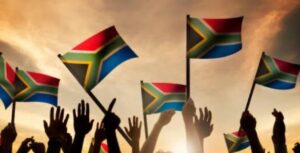
SA tackles misconceptions at UNGA ahead of G20 presidency
South Africa addresses misconceptions at UNGA while outlining its G20 presidency priorities, tackling misinformation on race-based laws…

South Africa has taken proactive steps to address diplomatic tensions and clarify misconceptions about its policies while briefing the United Nations General Assembly (UNGA) on its upcoming G20 presidency.
Led by G20 Sherpa and Director General of the Department of International Relations and Cooperation (Dirco), Zane Dangor, a senior delegation engaged global counterparts in discussions about South Africa’s role on the world stage and concerns over so-called race-based legislation.
The visit comes amid increasing scrutiny from certain international figures and diplomatic strains, particularly with the United States. The discussions aimed to dispel misinformation surrounding South Africa’s domestic policies, including the controversial narrative around land reform and claims of minority discrimination.
Diplomatic outreach and strategic engagements at UNGA
During their visit, the delegation built on existing diplomatic engagements initiated by the expelled US Ambassador Ebrahim Rasool. They met with high-ranking officials in Washington, D.C., including senior representatives from the White House, the National Security Council, the State Department, and the Treasury Department.
The Department of International Relations and Cooperation emphasized the significance of these engagements, stating, “We believe that these dialogues will assist to refine the current administration’s understanding of South Africa’s position on critical matters, fostering a more nuanced perspective.”
The delegation specifically tackled concerns about South Africa’s human rights commitments, particularly perceptions that government policies violate minority rights. Dirco also provided clarity on the Expropriation Act’s no compensation clause, stressing that it is not designed to facilitate unlawful land seizures or discourage foreign investment.
Misinformation and high-profile criticism
South Africa’s global standing has been impacted by widely circulated misinformation, some of which has been fueled by influential figures, including Pretoria-born billionaire Elon Musk. The SpaceX and Tesla CEO recently criticized South Africa’s regulatory framework, alleging that race-based laws prevented his internet satellite service, Starlink, from operating in the country. However, it later emerged that Starlink had never applied for an operating license, contradicting Musk’s claims.
Additionally, Musk has been a vocal critic of the controversial struggle song Kill the Boer, arguing that it incites violence against white farmers. His stance aligns with those who have condemned the chant, despite South Africa’s Constitutional Court upholding a ruling that the song does not constitute hate speech, given the country’s historical context.
Addressing historical injustices and constitutional obligations at UNGA
As part of its presentation at the UNGA, South Africa’s delegation reaffirmed the government’s commitment to redressing past injustices through constitutional and legal frameworks. Dirco underscored that policies aimed at transforming societal inequalities are consistent with South Africa’s democratic principles and international obligations.
“To this end, the senior officials presented information, which highlights the pervasive racial and structural inequality that continues to divide South Africa in all areas of the nation. The post-apartheid administration is constitutionally mandated to correct the injustices of the past. These initiatives are consistent with the efforts to ensure that post-apartheid South Africa entrenches human dignity, the achievement of equality and the advancement of human rights and freedoms, non-racialism, non-sexism and the supremacy of our constitution and the rule of law,” Dirco stated.
The visit also forms part of a broader diplomatic strategy to strengthen South Africa’s international relationships ahead of its G20 presidency. According to Dirco, the country is positioning itself as a strategic global partner, particularly in light of the 7 February Executive Order issued by the US President. This initiative seeks to reinforce South Africa’s role in global governance while ensuring that national interests align with those of key international partners.
Strengthening diplomatic ties and fostering understanding
As South Africa prepares to assume leadership of the G20, government officials are focused on both global economic priorities and managing perceptions about its policies. The delegation’s engagements at the UNGA reflect a broader effort to counter misleading narratives and reinforce South Africa’s commitment to democratic governance, human rights, and economic development.
“These fruitful engagements will be carried out at various levels of government,” Dirco stated, emphasizing the importance of continued dialogue to ensure a balanced and factual representation of South Africa’s policies on the global stage
